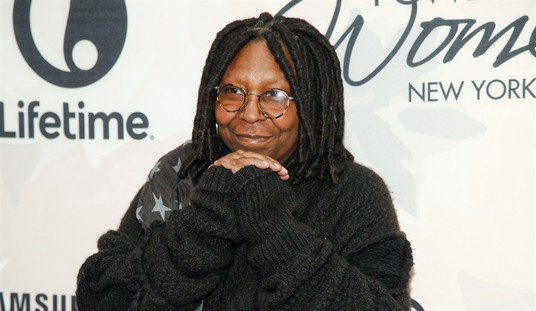Basketball eccentric Dennis Rodman is reportedly planning an August idyll with North Korea’s young tyrant, Kim Jong Un — a replay of his February excursion to Pyongyang, from which Rodman returned to report that his new best friend, Kim, does not want war. He just wants a phone call from the president of the United States.
Farcical? Yes. Except Rodman’s infatuation with the heir to North Korea’s totalitarian system has wound its way into the debates over what’s really going on in North Korea. This kind of thing fuels the apparently bottomless impulse in some quarters to believe that with a bit of outreach and coddling, the Pyongyang regime might just be persuaded to scrap its weapons programs, water down its personality cult, and behave like the kind of better-mannered dictatorship the U.S. doesn’t mind seeing overthrown. By these lights, the new tyrant of Pyongyang is merely a basketball-loving newlywed, a misunderstood fellow who likes Mickey Mouse and sports, and just needs a helping hand from the leaders of the free world to come in from the cold. If, in the meantime — so this argument tends to run — Kim’s regime is testing ballistic missiles and nuclear weapons, declaring an end to the 1953 Armistice, threatening nuclear strikes on the U.S. and South Korea, and promising a rain of bullets and sea of fire… well, what else is a lonely, misunderstood young dictator to do?
Were Kim Jong Un just some oddball down the block, lost in some virtual-reality cosmos of apocalyptic digital games, there might be some merit to sending in Dennis Rodman or, if need be, Mickey Mouse, to talk him down. But Kim presides as hereditary cult figure over the seasoned elite of a regime which has sustained itself through monstrous brutality at home, and an astounding set of rackets abroad, including not only state peddling of narcotics and counterfeit U.S. currency, but also the proliferation of missiles (to clients such as Iran, Syria, and Pakistan) and nuclear technology (remember that clandestine copy in Syria of North Korea’s Yongbyon nuclear reactor?). The totalitarian system is real, the prison camps are real, the weapons are real. Also real is North Korea’s remarkable expertise at nuclear extortion, by which I mean its long record of shaking down the West, repeatedly, through a mix of threats and come-hither nuclear-freeze deals — on which Pyongyang has invariably cheated.
In these realms, fun and games take a back seat to blood, treasure, and power. Move over, Dennis Rodman. Kim’s real pals are located in places where there is money, oil, and support to be garnered for the purpose of sustaining the North Korean regime. For that, North Korea looks chiefly these days to one of its longtime munitions and missile clients, Iran. Last September, in Tehran, a high-level North Korean delegation signed a Scientific Cooperation Agreement with the government of Iran. North Korea’s Korean Central News Agency reported that among the Iranian officials present for the signing, along with President Mahmoud Ahmadinejad, were the head of Iran’s Atomic Energy Organization, the minister of defense, and the governor of Iran’s Central Bank.
That is not a group that suggests Iran and North Korea are engaging in scientific cooperation in order to build better basketball courts. This deal carried alarming echoes of a 2002 agreement between North Korea and Syria, which former U.S. State Department official David Asher described in congressional testimony last week as having firmed up the nuclear cooperation with which North Korea helped Syria build a clandestine reactor on the Euphrates River. More details on this in my recent Forbes column on “The Iran-North Korea Axis of Proliferation.”
Related: I have some thoughts on “North Korea, Lies and Videotape,” at the PJ Tatler.









Join the conversation as a VIP Member